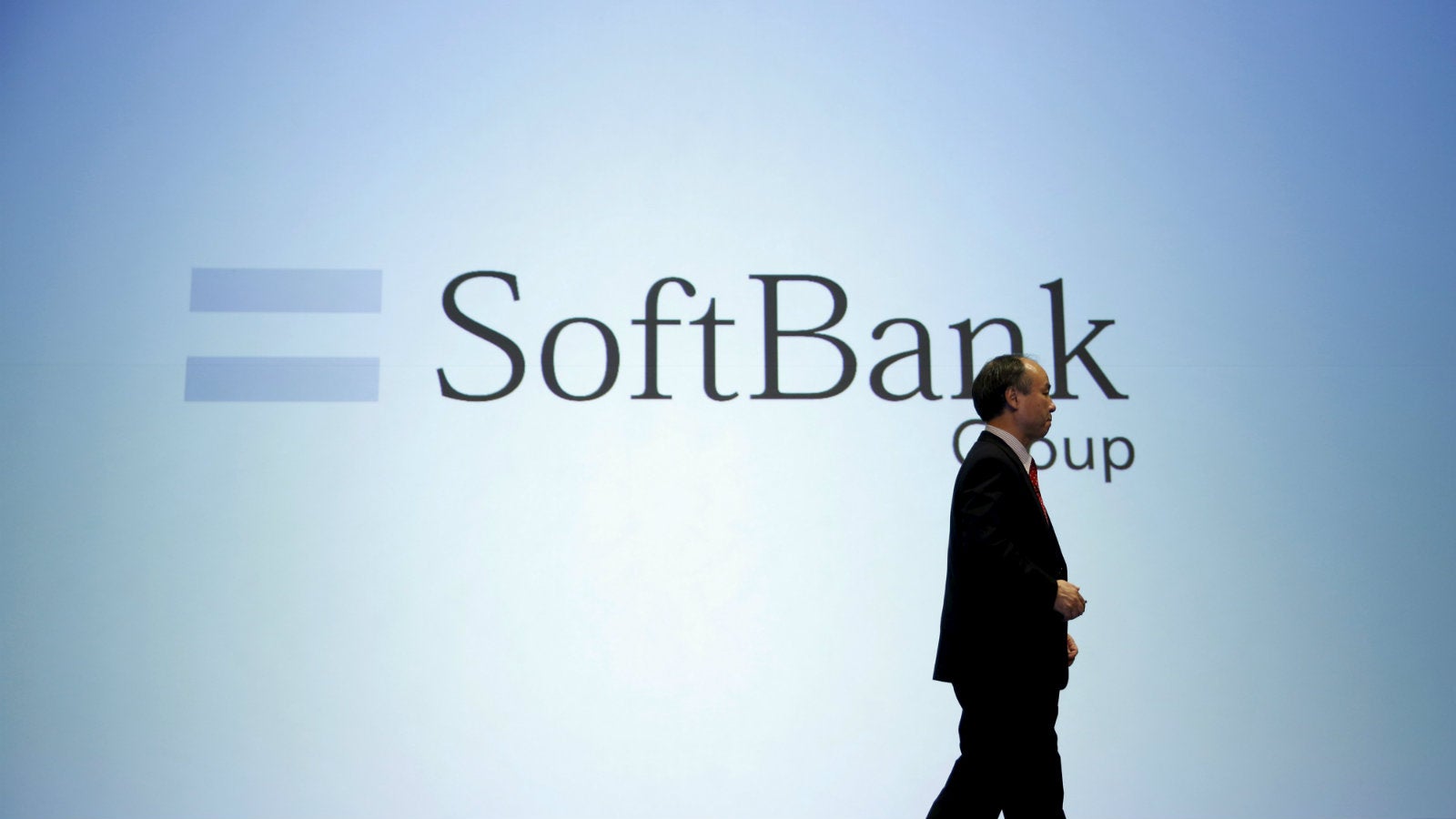Japan’s Softbank has revealed some exciting details on India’s hottest startups
Japan’s Softbank Group announced its earnings for fiscal 2016 on May 10, throwing some light on the otherwise secretive Indian startups.


Japan’s Softbank Group announced its earnings for fiscal 2016 on May 10, throwing some light on the otherwise secretive Indian startups.
One of the most active investors in India, Softbank owns stakes in e-commerce major Snapdeal, ride-hailing app Ola, hotels booking app OYO Rooms, groceries delivery startup Grofers, real estate portal Housing, and mobile advertising firm InMobi, among others.
In a post-earnings presentation, Softbank Group chief executive Masayoshi Son shared information about some of the biggest startups in his firm’s portfolio.
“India is going to make dramatical growth in 10-15 years,” Son said, announcing the group’s earnings. “Ten to 15 years ago, I was saying India will be the next China, but people questioned what I was saying. But you have all seen what has happened.”
While the telecom group remains bullish about the country, its current portfolio in India has seen mixed performance.
Snapdeal
Growth at India’s second-largest e-commerce website by gross merchandise value (GMV, or the sales through a marketplace) slowed significantly in fiscal 2016. GMV rose 90% during fiscal 2016 (pdf)—way lower than the 301% of fiscal 2015 (pdf).
In August 2015, Snapdeal had said it would overtake market leader Flipkart by GMV. However, that goal missed, Snapdeal appears to have shifted its benchmark for success from sales to the number of users.
“At Snapdeal, we are driving growth in a concerted manner by adding and retaining high-frequency users, offering them the widest assortment of goods and superlative experience every time they interact with us,” Snapdeal told Quartz in a statement.
OYO Rooms
Budget hotels aggregator OYO Rooms has turned profitable on a unit level, Softbank said in its presentation. This means OYO Rooms is making money on each booking.
Profitability has so far been an alien concept among Indian startups. With the funding environment dampening, companies are being pushed by investors to break even.
OYO Rooms currently has a presence across 170 Indian cities. Last month, it raised $100 million in its fifth funding round.
Ola
Ola currently has the “largest network of customers and cabs in India”, Softbank said.
“Uber used the internet and changed the business model (of ride-hailing). Uber is unlisted, but already (valued at) $60 billion. Our group company Ola is now number one in India. (It is an) Uber-like company,” Softbank’s Son said.
In fiscal 2016, Ola saw a 55% year-on-year improvement in expected time of arrival of cabs, according to Softbank. ”So if you ask for a car, the waiting time for the car (to arrive) became half. That’s how, you see, many cars are registered on Ola and the network is expanding and growing.”
In December 2015, Ola had a presence in more than 100 Indian cities, while Uber operated in two dozen. In its earnings presentation for fiscal 2015, Softbank had said that Ola commands an 80% share of the Indian market.
Hike
Instant messenger Hike has become the first Indian internet company with around 100 million users, Softbank said. The monthly message volume on Hike increased 2.4 times in March 2016 from a year ago.
“(Like) the Line (app) of Japan, Hike messenger became number two in the India market,” Softbank’s Son said. “We have 40% stake in this company.”
The messaging app started by Kavin Mittal—son of Bharti Airtel founder Sunil Mittal—had raised $14 million from Bharti Softbank, a joint venture between Bharti Group and Softbank in April 2014. The app competes with the global leader, WhatsApp.